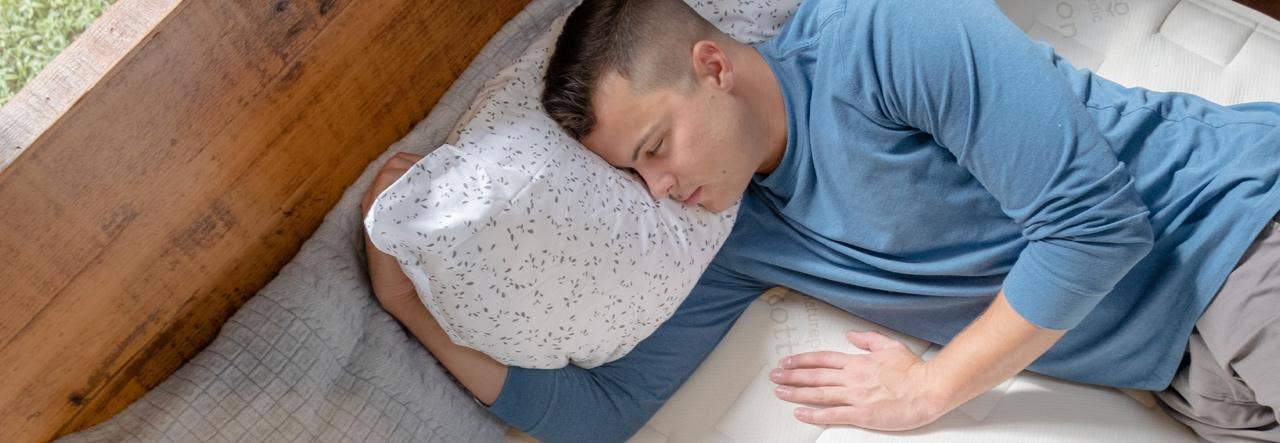If you’ve ever used the phrase, “I’m losing sleep over this,” then you already know there’s a direct link between feeling stressed and your ability to sleep.
In fact, getting a good night’s rest and stress are more closely related than you might realize.
The chemicals in your brain that are connected to deep sleep are the same ones that tell your body to halt the production of stress hormones. If you regularly deal with insomnia at night, your body will keep pumping out those stress hormones, leading to an endless cycle of stress affecting sleep. What’s more: stress hormones peak in the early evening—right when you’re trying to wind down, de-stress, and get ready for bed.
While there are many negative consequences of prolonged stress on health and wellness, trying your best to alleviate stress at night and getting plenty of sleep should be a top priority. Otherwise, a night of tossing and turning can set off a whole range of issues for the days ahead, such as irritability, fatigue, a weakened immune system, or stomach issues.
To cope with stress in a healthful way and improve your sleep quality, it’s important to first identify the sleep-stress cycle and then to adopt strategies that can lower your stress levels at night.
The vicious cycle of high stress and poor sleep
Sleep is a necessary function, allowing our bodies to rest and our brains to recharge after a long day. Getting the recommended seven hours of sleep is key to reaping the full benefits of a full night of rest, such as memory consolidation and muscle repair.
But when your body is experiencing chronic or even acute stress, the heightened adrenaline levels will make your body think it’s in perpetual danger, which is counterintuitive to sleep and will keep you from reaping these benefits.
Though you may still be able to fall asleep, it’s unlikely that you’ll stay asleep—and waking up throughout the night will just make you feel as if you haven’t slept at all!
The survey also reported that 43 percent of adults claim that stress has caused them to lie awake at night in the past month. Moreover, many report that their stress increases when the length and quality of their sleep decreases.
This demonstrates the vicious cycle of high stress and poor sleep, where the stress people are experiencing will irreparably damage the quality of sleep over and over again.
How to sleep when you’re stressed
Nevertheless, feeling stressed on a day-to-day basis is extremely common, especially in today’s environment where unprecedented uncertainties are calling our health and safety into question. (Recently, researchers at Harvard University called sleep the “latest casualty” of the pandemic, warning people of the heightened risk of developing sleep issues like insomnia.)
So how can you improve the quality of sleep even when you’re feeling stressed?
For one, stress management is key. In addition to exercising throughout the week and following a balanced diet, you can alleviate stress through meditation techniques and by controlling your breathing. You can also focus on achieving a healthy work-life balance, which can be instrumental to your ability to “release” feelings of anxiety when stress is simply unavoidable.
Practicing proper sleep hygiene is another way to improve your quality of sleep, helping you to prepare for stress management. Some guidelines for good sleep hygiene include:
- Create an optimal sleep environment - Your bedroom’s temperature should be comfortable and conducive to sleeping; experts recommend keeping your bedroom between 60 and 67 degrees Fahrenheit, though 65 degrees is most ideal. Do what you can to reduce distractions and exposure to outside noise as well.
- Think twice about your bedding - Knowing that you’re sleeping on sheets, pillows, and a mattress that are designed for healthy sleep can positively impact your ability to unwind at night. (You shouldn’t only get to sleep on luxurious bedding at five-star hotels!) Investing in organic bedding that’s free from toxic chemicals will promote healthier sleep, as your own bed will be in support of a good night’s rest.
- Reduce your evening indulgences - It’s wise to avoid consuming nicotine, caffeine, or alcohol in the hours leading up to bedtime. All of these things are stimulants by nature, which will make you feel alert when you should be relaxing. Though some believe alcohol is a sedative and can induce tiredness, you may experience sleep fragmentation as a result of your body processing it and breaking it down. The same goes for large meals before bed; avoid them if you can.
At Naturepedic, we care deeply about getting a good night’s rest that kickstarts good health for the day ahead. This is why all of our mattresses and sleep products are made with GOTS-certified organic materials. To learn more about our certifications and how they contribute to healthy, stress-free sleep, you can read about it on our blog.
 BABY
BABY  KIDS
KIDS  ADULT
ADULT  LEARN
LEARN  STORES
STORES 